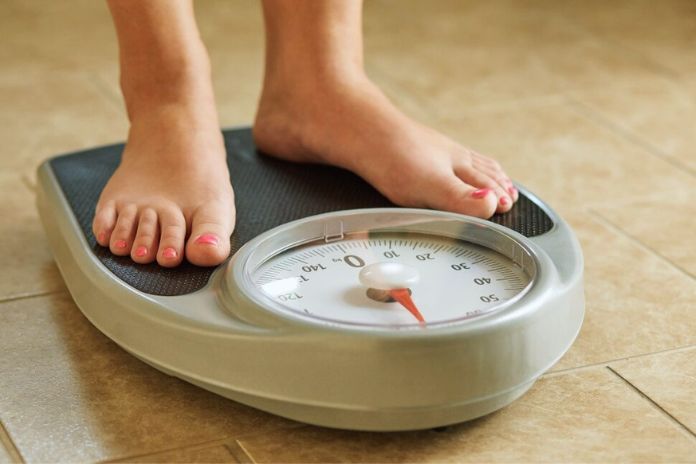Food reeducation can be difficult at first, but it gets easier when it becomes a habit. To do food reeducation and lose weight, you need to be willing and disciplined to police yourself and not fall into the tale of “fad diets.” The tip is: if you want to lose weight and maintain the weight in the long term, forget about restrictive diets. And to help you, we have prepared ten essential tips that can help you a lot.
What Is Food Reeducation?
Before we move on to the tips, let’s talk about Food Reeducation. It serves better to understand the effect of food on our health. It helps reformulate the daily menu, helps with weight loss, and avoids the “accordion effect,” weight regain.
Food reeducation is a long and gradual process, as it requires changes in amounts and types of food, such as fruits, vegetables, cereals, and whole grains, that are rich in fiber.
This new habit will help you choose healthier and more natural foods, usually high in fiber and healthy fats.
How Do I Start Food Reeducation?
The first step is to identify what changes your body needs. Because the goal is to adapt your body to the new eating style. Also, your body needs the essential nutrients to function more healthily.
Ten Tips For Doing Food Reeducation
In addition to food, other habits are indicated to improve your health, control hunger, and facilitate healthy weight loss.
Do Not Skip Any Meals
Skipping meals thinking that you will lose weight faster is a bad strategy. The effect is the opposite! The body understands that you are starving, and then the metabolism is prolonged, and you end up storing fat. In addition, prolonged fasting increases insulin production, causing hypoglycemia and a lack of blood sugar. Going without food for a long time causes weakness, dizziness, and malaise.
Have Breakfast
After hours without eating, the body needs to replenish energy as soon as it wakes up. Breakfast makes our metabolism work properly again because, during the night, it is slow and without power.
Breakfast is responsible for regulating various hormones and is essential for maintaining energy. Skipping the day’s first meal is also linked to a higher risk of having high cholesterol and heart disease.
Fractionate Your Food Every 3 Hours
Eating every 3 hours helps control hunger throughout the day, plus when you go to main meals like lunch and dinner, it will make sure you don’t overeat.
Prepare A Colorful Dish For Lunch And Dinner
Foods are divided into six color groups. For each group, there is a critical food property and vitamin. You ingest various minerals, phytochemicals, and antioxidants with a colorful diet.
Invest in fresh vegetables, legumes, meats, and lean proteins as these foods will help to reduce the amount of food in the diet and reduce the desire to eat between meals, which favors weight loss.
Consume 3 To 5 Fruits A Day
Experts recommend 3-5 servings of fruit in various colors to ensure a complete source of nutrients.
In addition, they will help to prolong satiety and decrease the desire for sweets throughout the day, causing the amount of sugar and calories to fall during the day. The idea is to include them during the meal break.
Avoid Fried Foods, Fats, And Sweets
Avoid eating fried foods that are very fatty and sweet, as these foods cause increased blood pressure, accumulation of abdominal fat, insulin resistance, obesity, and diseases such as cancer. Give preference to eating grilled, baked foods. You can replace the oil with coconut oil, sesame oil, or extra virgin olive oil, healthier foods.
To reduce the consumption of sweets and sugar, put less sugar in your daily food. That way, your taste buds get used to it without suffering from that bitter feeling of taking the sugar off the menu altogether.
Prioritize Whole Carbs
Eating foods with whole grains makes digestion slower, releases less sugar in the blood, and is rich in fiber, improving the intestine’s functioning and giving you satiety for longer.
Eat Slowly And Chew Well
Eating slowly is extremely important, as it is in the mouth that the digestion of what we eat begins. Chewing promotes the breakdown of food into smaller particles. In addition to moistening the food, saliva still has an enzyme known as ptyalin, which starts the digestion of starch (complex sugar).
Drink 2 To 3 Liters Of Water
Water helps to provide health gains, making the effect of dietary change be achieved in a few weeks. She is a partner in lifestyle change and food reeducation. It helps eliminate toxins and fats from the body, making it work more fluidly.
Water also helps the body’s metabolism, favoring the absorption of vitamins and nutrients from food.
Focus On Your Goal And Do Food Reeducation; Never Diet
Your body interprets a very restrictive diet as a threat, so it stores energy in the form of fat to suffer less the next time you go on a crazy diet. The truth is that starving yourself causes the opposite effect of what you want; instead of losing fat, your body stores even more fat.
Also Read: 12 Foods That Help You Lose Weight & The Benefits

